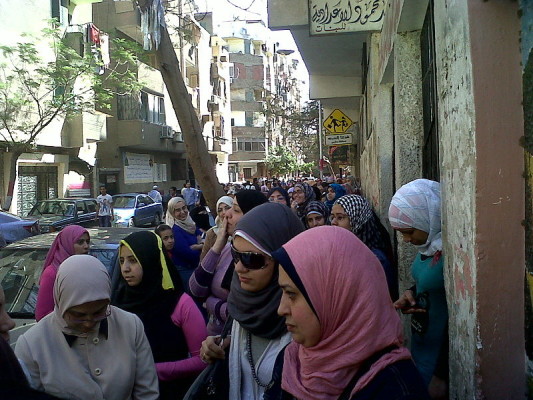The uprisings in the Middle East and North Africa beginning in late 2010 have drastically altered the political landscape in the region. In December of 2010, Mohammed Bouazizi set himself on fire in Tunisia, sparking the uprisings and outser against Zine el Abedine Ben Ali. Shortly after, Hosni Mubarak resigned after Egyptians took to the streets calling for his resignation. Throughout the region, authoritarian leaders were under pressure by their public. Many of the protests results in new leadership, while many did not. And some states such as Syria are in a prolonged internal conflict.
Following these changes, many of the states had elections, resulting in the electoral victories of Islamist parties such as the Muslim Brotherhood and Ennahda. However, in the case of Egypt, this did not last long. The military decided to overthrow the Muslim Brotherhood. Currently, Egypt is facing a great deal of internal turmoil, as the military took over power, jailed many members of the Muslim Brotherhood, froze their assets, and banned them as an organization. Currently, Muslim Brotherhood supporters are fighting with the Egyptian security forces, while El-Sisi have further consolidated his power, and already continued his authoritarian streak against journalists, along with protesters opposed to his human rights abuses.
In other areas of the Middle East, states are dealing with a number of issues. In Israel and the Palestinian territories, issues of statehood, human rights, and security are at the forefront of discussions. There have been attempts at recent peace talks, but many have been skeptical of the progress. Others still have continued to criticize Israeli leadership who support continue settlement construction in East Jerusalem and the West Bank.
In the Gulf States, many of the royal families were able to hold onto political power, despite citizen frustrations in states such as Bahrain and Saudi Arabia. Many of these states have high oil wealth, and have used their resources to further hold onto political power. Despite staying in power, activists are still quite active throughout the Gulf States, putting pressure on the governments for political reform.
In Turkey, Recep Tayyip Erdogan survived a political struggle after 2013 summer protests against what many see as a rising authoritarian current in the state. Moreover, there is a recent corruption scandal plaguing the Justice and Development Party, of which Erdogan blamed journalists, outside interventionists, and Fethullah Gulen of the Hizmet Movement.
In Syria, Bashar Al-Assad is in a continued fight against rebel forces for the control of Syria. And in Iraq, violent Islamist groups such as ISIS have taken control of major cities in the country. Western state leaders are currently deciding their response to these political developments.
Iran leadership, under President Hassan Rouhani, recently negotiated a nuclear deal with the United States and other members of the international community. Yet, domestically, human rights violations continue to be suppressed. In Lebanon, there are tensions as violence is increasing, particularly between pro-Assad and anti-Syrian actors. Hezbollah has also been active in the Syrian conflict.
In Israel and the Occupied Palestinian Territories, Israel has responded to the murder of three teenagers with the attacking of Hamas in the Gaza Strip. In these actions, hundreds have been killed, many of them noncombatants. In response, Hamas has continued to shoot rockets into Israel. International relations scholars examine questions such as ‘Just War’, violations of law related to territorial occupation (in this case Israel’s continued occupation and settlement expansion of the Palestinian Territories, as well as attempts at diplomatic resolutions between the various actors.
With the quickly changing events in the region, it is important to understand the political intricacies amongst different states, individuals, and NGOs in the Middle East. Below are a couple of key texts that help understand the political history of the region.



